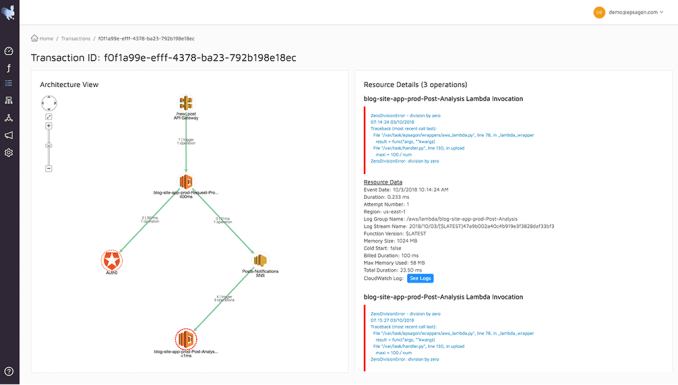//
London-based startup Applied has bagged £1.5M (~$2M) in seed funding for a fresh, diversity-sensitive approach to recruitment that deconstructs and reworks the traditional CV-bound process, drawing on behavioural science to level the playing field and help employers fill vacancies with skilled candidates they might otherwise have overlooked.
Fairer hiring is the pitch. “If you’re hiring for a product lead, for example, it’s true that loads and loads of product leads are straight, white men with beards. How do we get people to see well what is it actually that this job entails?” founder and CEO Kate Glazebrook tells us. “It might actually be the case that if I don’t know any of the demographic background I discover somebody who I would have otherwise overlooked.”
Applied launched its software as a service recruitment platform in 2016, and Glazebrook says so far it’s been used by more than 55 employers to recruit candidates for more than 2,000 jobs. While more than 50,000 candidates have applied via Applied to date.
The employers themselves are also a diverse bunch, not just the usual suspects from the charitable sector, with both public and private sector organizations, small and large, and from a range of industries, from book publishing to construction, signed up to Applied’s approach. “We’ve been pleased to see it’s not just the sort of thing that the kind of employers you would expect to care about care about,” says Glazebrook.
Applied’s own investor Blackbird Ventures, which is leading the seed round, is another customer — and ended up turning one investment associate vacancy, advertised via the platform, into two roles — hiring both an ethnic minority woman and a man with a startup background as a result of “not focusing on did they have the traditional profile we were expecting”, says Glazebrook.
“They discovered these people were fantastic and had the skills — just a really different set of background characteristics than they were expecting,” she adds.
Other investors in the seed include Skip Capital, Angel Academe, Giant Leap and Impact Generation Partners, plus some unnamed angels. Prior investors include the entity Applied was originally spun out of (Behavioural Insights Team, a “social purpose company” jointly owned by the UK government, innovation charity Nesta, and its own employees), as well as gender advocate and businesswoman Carol Schwartz, and Wharton Professor Adam Grant.
Applied’s approach to recruitment employs plenty of algorithms — including for scoring candidates (its process involves chunking up applications and also getting candidates to answer questions that reflect “what a day in the job actually looks like”), and also anonymizing applications to further strip away bias risks, presenting the numbered candidates in a random order too.
But it does not involve any AI-based matching. If you want to make hiring fairer, AI doesn’t look like a great fit. Last week, for example, Reuters reported how in 2014 ecommerce giant Amazon built and then later scrapped a machine learning based recruitment tool, after it failed to rate candidates in a gender-neutral way — apparently reflecting wider industry biases.
“We’re really clear that we don’t do AI,” says Glazebrook. “We don’t fall into the traps that [companies like] Amazon did. Because it’s not that we’re parsing existing data-sets and saying ‘this is what you hired for last time so we’ll match candidates to that’. That’s exactly where you get this problem of replication of bias. So what we’ve done instead is say ‘actually what we should do is change what you see and how you see it so that you’re only focusing on the things that really matter’.
“So that levels the playing field for all candidates. All candidates are assessed on the basis of their skill, not whether or not they fit the historic profile of people you’ve previously hired. We avoid a lot of those pitfalls because we’re not doing AI-based or algorithmic hiring — we’re doing algorithms that reshape the information you see, not the prediction that you have to arrive at.”
In practice this means Applied must and does take over the entire recruitment process, including writing the job spec itself — to remove things like gendered language which could introduce bias into the process — and slicing and dicing the application process to be able to score and compare candidates and fill in any missing bits of data via role-specific skills tests.
Its approach can be thought of as entirely deconstructing the CV — to not just remove extraneous details and bits of information which can bias the process (such as names, education institutions attended, hobbies etc) but also to actively harvest data on the skills being sought, with employers using the platform to set tests to measure capacities and capabilities they’re after.
“We manage the hiring process right from the design of an inclusive job description, right through to the point of making a hiring decision and all of the selection that happens beneath that,” says Glazebrook. “So we use over 30 behavioural science nudges throughout the process to try and improve conversion and inclusivity — so that includes everything from removal of gendered language in jobs descriptions to anonymization of applications to testing candidates on job preview based assessments, rather than based on their CVs.”
“We also help people to run more evidence-based structured interviews and then make the hiring decision,” she adds. “From a behavioral science standpoint I guess our USP is we’ve redesigned the shortlisting process.”
The platform also provides jobseekers with greater visibility into the assessment process by providing them with feedback — “so candidates get to see where their strengths and weaknesses were” — so it’s not simply creating a new recruitment blackbox process that keeps people in the dark about the assessments being made about them. Which is important from an algorithmic accountability point of view, even without any AI involved. Because vanilla algorithms can still sum up to dumb decisions.
From the outside looking in, Applied’s approach might sound highly manual and high maintenance, given how necessarily involved the platform is in each and every hire, but Glazebrook says in fact it’s “all been baked into the tech” — so the platform takes the strain of the restructuring by automating the hand-holding involved in debiasing job ads and judgements, letting employers self-serve to step them through a reconstructed recruitment process.
“From the job description design, for example, there are eight different characteristics that are automatically picked out, so it’s all self-serve stuff,” explains Glazebrook, noting that the platform will do things like automatically flag words to watch out for in job descriptions or the length of the job ad itself.
“All with that totally automated. And client self-serve as well, so they use a library of questions — saying I’m looking for this particular skill-set and we can say well if you look through the library we’ll find you some questions which have worked well for testing that skill set before.”
“They do all of the assessment themselves, through the platform, so it’s basically like saying rather than having your recruiting team sifting through paper forms of CVs, we have them online scoring candidates through this redesigned process,” she adds.
Employers themselves need to commit to a new way of doing things, of course. Though Applied’s claim is that ultimately a fairer approach also saves time, as well as delivering great hires.
“In many ways, one of the things that we’ve discovered through many customers is that it’s actually saved them loads of time because the shortlisting process is devised in a way that it previously hasn’t been and more importantly they have data and reporting that they’ve never previously had,” she says. “So they now know, through the platform, which of the seven places that they placed the job actually found them the highest quality candidates and also found people who were from more diverse backgrounds because we could automatically pull the data.”
Applied ran its own comparative study of its reshaped process vs a traditional sifting of CVs and Glazebrook says it discovered “statistically significant differences” in the resulting candidate choices — claiming that over half of the pool of 700+ candidates “wouldn’t have got the job if we’d been looking at their CVs”.
They also looked at the differences between the choices made in the study and also found statistically significant differences “particularly in educational and economic background” — “so we were diversifying the people we were hiring by those metrics”.
“We also saw directional evidence around improvements in diversity on disability status and ethnicity,” she adds. “And some interesting stuff around gender as well.”
Applied wants to go further on the proof front, and Glazebrook says it is now automatically collecting performance data while candidates are on the job — “so that we can do an even better job of proving here is a person that you hired and you did a really good job of identifying the skill-sets that they are proving they have when they’re on the job”.
She says it will be feeding this intel back into the platform — “to build a better feedback loop the next time you’re looking to hire that particular role”.
“At the moment, what is astonishing, is that most HR departments 1) have terrible data anyway to answer these important questions, and 2) to the extent they have them they don’t pair those data sets in a way that allows them to prove — so they don’t know ‘did we hire them because of X or Y’ and ‘did that help us to actually replicate what was working well and jettison what wasn’t’,” she adds.
The seed funding will go on further developing these sorts of data science predictions, and also on updates to Applied’s gendered language tool and inclusive job description tool — as well as on sales and marketing to generally grow the business.
Commenting on the funding in a statement, Nick Crocker, general partner at Blackbird Ventures said: “Our mission is to find the most ambitious founders, and support them through every stage of their company journey. Kate and the team blew us away with the depth of their insight, the thoughtfulness of their product, and a mission that we’re obsessed with.”
In another supporting statement, Owain Service, CEO of BI Ventures, added: “Applied uses the latest behavioural science research to help companies find the best talent. We ourselves have recruited over 130 people through the platform. This investment represents an exciting next step to supporting more organisations to remove bias from their recruitment processes, in exactly the same way that we do.”

from Startups – TechCrunch https://ift.tt/2yGGIqQ


